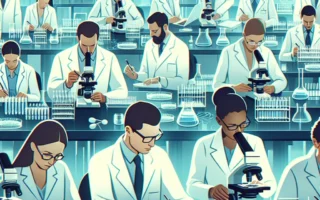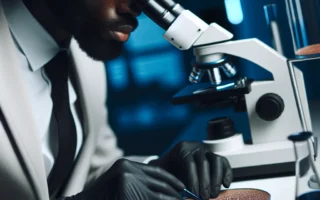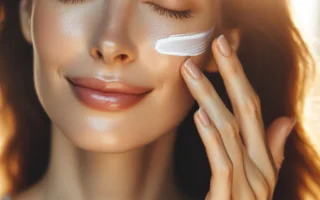The Science of Aging: Understanding the Biological Process
Exploring the latest anti-aging techniques involves delving into the science of aging and understanding the biological processes that underlie this complex phenomenon. Aging is a natural biological process characterized by a gradual decline in the body’s ability to repair and regenerate cells and tissues. From a cellular perspective, aging is influenced by a variety of factors including genetic predisposition, environmental stressors, and lifestyle choices.
At the cellular level, key players in the aging process include telomeres, which are protective caps on the ends of chromosomes that shorten with each cell division, eventually leading to cellular senescence. Additionally, the accumulation of damage from free radicals and other sources can contribute to aging at the molecular level. Understanding these mechanisms is crucial to developing effective anti-aging strategies.
Researchers have made significant strides in elucidating the molecular and cellular pathways involved in aging, leading to the development of innovative anti-aging interventions. These interventions target processes such as cellular senescence, DNA damage repair, and mitochondrial function to potentially slow down or even reverse aspects of aging.
By comprehensively understanding the science of aging, scientists and medical professionals can better identify and evaluate the effectiveness of emerging anti-aging techniques and interventions. This knowledge serves as a foundation for the development of targeted and evidence-based approaches to promote healthy aging and improve overall quality of life.
Innovative Anti-Aging Treatments and Breakthroughs
Exploring the Latest Anti-Aging Techniques
As the quest for eternal youth continues, the field of anti-aging treatments has witnessed remarkable advancements in recent years. Innovative anti-aging treatments and breakthroughs are revolutionizing the way we approach aging, offering promising solutions that go beyond traditional skincare routines and cosmetic procedures.
One of the most exciting breakthroughs in anti-aging research is the development of stem cell therapies. Stem cells have the potential to regenerate and repair damaged tissues, offering a novel approach to reversing the signs of aging at a cellular level. This cutting-edge treatment holds the promise of rejuvenating aging skin, reducing wrinkles, and improving overall skin texture and tone.
Furthermore, a growing body of research is shedding light on the role of peptides in anti-aging skincare. Peptides, which are short chains of amino acids, have demonstrated remarkable abilities to stimulate collagen production, enhance skin elasticity, and diminish the appearance of fine lines and wrinkles. The integration of peptides into skincare formulations represents a promising frontier in the fight against aging, offering targeted and effective solutions for age-related skin concerns.
In addition to these scientific breakthroughs, the emergence of non-invasive anti-aging procedures has garnered significant attention. Technologies such as radiofrequency, ultrasound, and laser treatments are providing gentle yet powerful alternatives to traditional surgical interventions. These innovative techniques can address various aging concerns, including skin laxity, uneven pigmentation, and loss of facial volume, with minimal downtime and natural-looking results.
It is evident that the landscape of anti-aging treatments is evolving rapidly, driven by innovative research and technological advancements. With the continuous exploration of cutting-edge therapies and breakthroughs, the prospects for achieving graceful and healthy aging are more promising than ever.
Lifestyle Changes for Longevity and Youthfulness
Exploring the latest anti-aging techniques involves not only advancements in technology and skincare but also a crucial focus on lifestyle changes for longevity and youthfulness. While anti-aging creams and procedures can certainly help in maintaining a youthful appearance, the role of lifestyle factors in aging cannot be overstated.
One of the most significant factors in anti-aging is adopting a healthy diet. Antioxidant-rich foods such as berries, leafy greens, and nuts can help combat the effects of aging by reducing oxidative stress and inflammation in the body. Additionally, staying hydrated and consuming foods high in essential nutrients like omega-3 fatty acids can contribute to a radiant, youthful complexion.
Regular physical activity is another vital component in the quest for longevity and youthfulness. Exercise not only helps in maintaining a healthy weight and muscle mass but also improves circulation, increases oxygen flow to the skin, and promotes the production of collagen, which is essential for skin elasticity.
Incorporating stress-reducing practices such as meditation, yoga, or mindfulness techniques can also play a significant role in combating the aging process. Chronic stress can accelerate cellular aging, so managing stress is essential for maintaining a youthful glow and overall well-being.
Furthermore, avoiding harmful habits such as smoking and excessive alcohol consumption is paramount in anti-aging efforts. Cigarette smoke contains numerous toxins that accelerate skin aging, while alcohol dehydrates the body, leading to dull skin and exacerbating the appearance of fine lines and wrinkles.
By implementing these lifestyle changes, one can enhance the effectiveness of anti-aging treatments and maintain a youthful, radiant appearance for years to come.
Future of Anti-Aging: From Genetics to Nanotechnology
As we delve into the future of anti-aging techniques, one cannot help but be fascinated by the innovative strides being made in the fields of genetics and nanotechnology. These cutting-edge advancements hold the promise of revolutionizing the way we approach aging and its associated effects on the human body.
Genetics, with the advent of CRISPR gene editing technology, has opened up new possibilities for manipulating the human genome to potentially reverse aging at a fundamental level. Scientists are exploring the genetic pathways that govern aging processes, aiming to identify key genes and mechanisms that could be targeted to delay or even reverse the aging process.
On the other hand, nanotechnology offers a glimpse into a future where targeted drug delivery, cellular repair, and regenerative medicine could significantly impact the aging process. Nanoparticles, engineered to carry specific payloads to precise locations within the body, have the potential to rejuvenate aging tissues and organs at the cellular and molecular levels.
These advancements, while still largely in the realm of experimental research, hold immense promise for the future of anti-aging. The convergence of genetics and nanotechnology presents an exciting frontier in the pursuit of prolonged youthfulness and enhanced longevity.
Undoubtedly, as we stand on the precipice of a new era in anti-aging research, the potential of these technologies to redefine the aging process as we know it is both thrilling and full of promise.
Debunking Common Myths about Anti-Aging
Exploring the latest anti-aging techniques has become a hot topic in today’s society, with many individuals seeking effective ways to maintain a youthful appearance and slow down the aging process. However, the abundance of information on this subject has led to the proliferation of myths and misconceptions. It’s essential to debunk these common myths to ensure that individuals are well-informed and can make educated decisions regarding anti-aging treatments.
One prevalent myth surrounding anti-aging techniques is the belief that there is a miracle treatment or product that can completely reverse the aging process. In reality, while there are numerous effective anti-aging strategies available, there is no single magical solution that can turn back the clock. Anti-aging is a comprehensive approach that often requires a combination of healthy lifestyle choices, skincare regimens, and, in some cases, professional treatments.
Another widespread misconception is that only invasive procedures such as surgery or injections can deliver noticeable anti-aging results. In recent years, technological advancements have led to the development of non-invasive and minimally invasive treatments that can effectively address signs of aging. These may include laser therapy, ultrasound treatments, and innovative skincare products formulated with potent anti-aging ingredients.
Furthermore, there is a common belief that anti-aging methods are only beneficial for individuals of a certain age. In reality, it is never too early to start incorporating anti-aging practices into one’s lifestyle. Prevention is often more effective than attempting to reverse significant signs of aging later in life. By adopting a proactive approach to anti-aging, individuals can potentially delay the onset of visible aging and maintain a more youthful appearance.
In conclusion, it is important to debunk these common myths surrounding anti-aging to empower individuals to make informed choices about their pursuit of youthfulness. By understanding the realities of anti-aging techniques, individuals can effectively navigate the plethora of options available and choose the most suitable strategies to achieve their desired results.
Expert Q&A: What You Need to Know about Anti-Aging Techniques
As an inquisitive writer who delves into the latest anti-aging techniques, it’s essential to dive into the insights provided by experts in the field. Here’s everything you need to know about anti-aging techniques, straight from the experts:
Q: What are the most effective non-invasive anti-aging procedures available today?
A: According to renowned dermatologists and plastic surgeons, non-invasive procedures such as laser therapy, chemical peels, and microdermabrasion are highly effective in targeting signs of aging such as wrinkles, fine lines, and uneven skin texture. These treatments stimulate collagen production and promote skin rejuvenation without the need for surgery.
Q: What role does a healthy lifestyle play in combating the aging process?
A: Leading experts unanimously emphasize the pivotal role of a healthy lifestyle in anti-aging efforts. Proper nutrition, regular exercise, adequate hydration, and sufficient sleep are fundamental in maintaining youthful skin and overall well-being. Additionally, avoiding smoking and excessive sun exposure is crucial for preventing premature aging.
Q: Are there any promising advancements in anti-aging research and technology?
A: Exciting breakthroughs in the field of anti-aging research include the development of innovative skincare ingredients, such as peptides and growth factors, that have shown remarkable anti-aging properties. Furthermore, advancements in regenerative medicine, including stem cell therapy and platelet-rich plasma treatments, hold great promise in rejuvenating aging skin and tissues.
Stay tuned for further expert insights and in-depth analysis of the latest anti-aging techniques to keep abreast of the ever-evolving landscape of anti-aging advancements.



